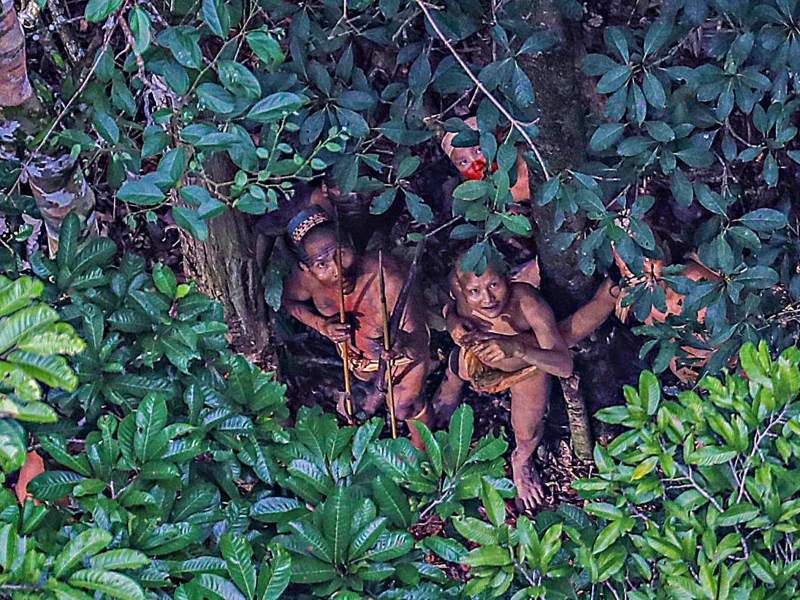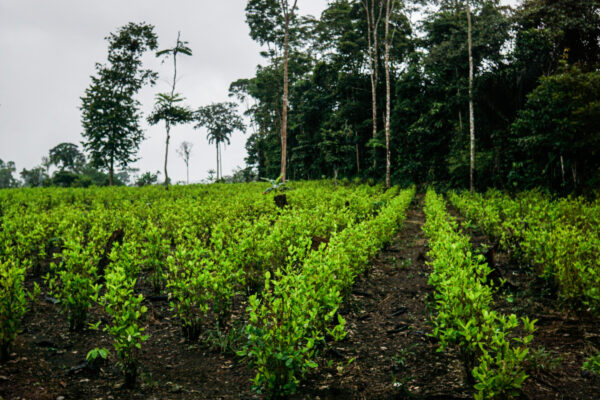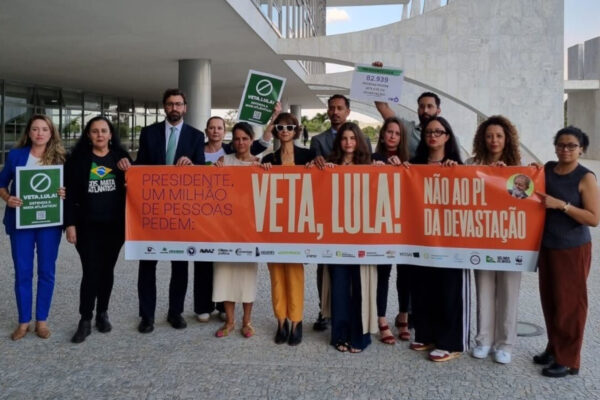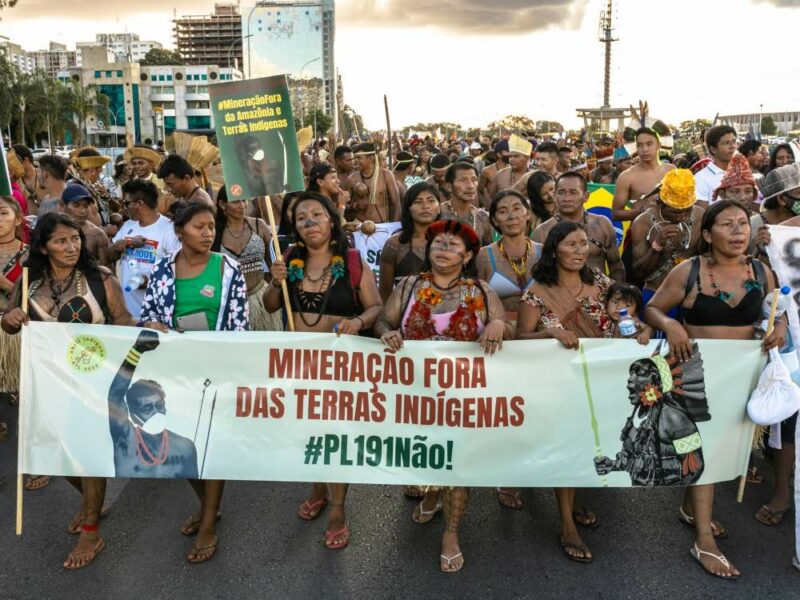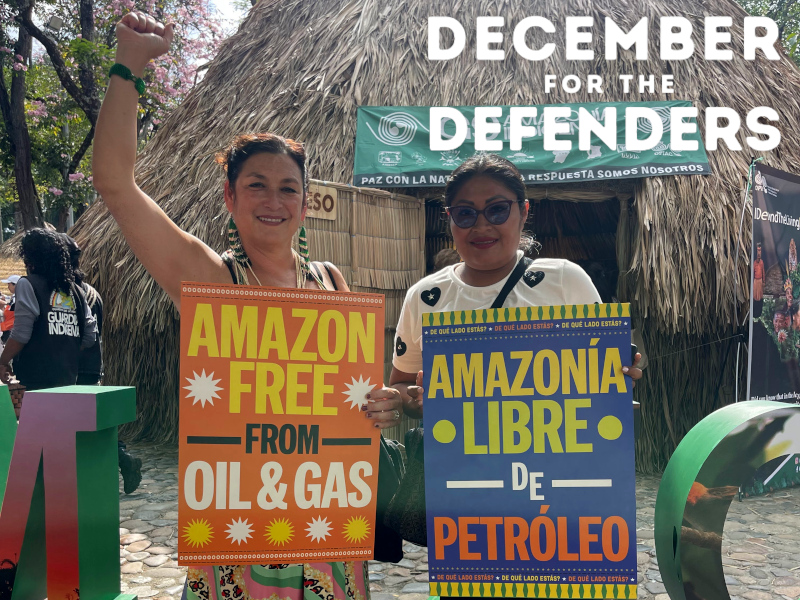The coronavirus pandemic is borderless and it doesn’t care about anyone’s socioeconomic status. Panic has reached even those who can readily access information and can afford to stock up on supplies and access health services. In Brazil, the government has said little about the danger of the virus spreading among those who cannot easily isolate themselves. At risk are those who live in collective houses, like Indigenous peoples, those who live in slums and favelas, or who are homeless. These vulnerable populations likely do not have access to clean water – let alone hand sanitizer or hospitals.
What will become of the people who have historically been killed by infectious diseases due to their low immunity, who live in remote regions and depend on public services that continue to be dismantled? For now, Indigenous peoples have organized their demands and resisted the Bolsonaro administration. Brazilian Indigenous territories are essentially on lockdown due to the novel coronavirus.
“We don’t have time to ask anymore! We demand that the Brazilian government, as a measure of prevention and containment of the advance of COVID-19 in and around Indigenous territories, immediately expel invaders such as miners, loggers, hunters, land grabbers, and missionaries,” said Nara Baré, Executive Coordinator of the Coordination of Indigenous Organizations of the Brazilian Amazon (COAIB).
Encouraged by Bolsonaro’s project to open up Indigenous territories for economic exploitation, non-Indigenous people are putting more than 300,000 Indigenous people in the Brazilian Amazon at risk of contracting the novel coronavirus. What’s worse is that the deforestation caused by these criminal industries is encroaching upon the territory of isolated communities. There are 114 reports of Indigenous peoples living in voluntary isolation – 28 of which have been confirmed – comprising a population that is acutely vulnerable to COVID-19.
“We demand the monitoring and expulsion [of outsiders] be included in the National Contingency Plan for Human Infection with the novel coronavirus, so that the invaders no longer return to Indigenous territories,” said Ms. Baré, who is originally from the Upper Rio Negro Indigenous region in northern Amazonas.
Amazonian Indigenous peoples also demand that faith-based organizations be barred from forcing contact with isolated peoples. The escalating threat of genocide posed by missionaries is embodied by Ricardo Lopes Dias, who is now the general coordinator of Isolated and Newly Contacted Indigenous at Brazil’s Indigenous agency, FUNAI. Nominated by Bolsonaro, Lopes worked for ten years in Ethnos360 (previously known as the New Tribes of Brazil Mission, MNTB), an organization based in Florida which has promoted the evangelization of Brazilian Indigenous peoples since the 1950s. Not only does his appointment represent the revival of a state-sponsored colonial agenda, but it also presents a dreadful menace to the lives of isolated peoples by forcing contact with individuals who have no immunity to all western diseases.
The idea of religious conversion or “salvation” of Indigenous peoples is in itself an affront to the self-determination and culture of Indigenous communities. By supporting such a policy and failing to prioritize the protection of highly vulnerable peoples during a pandemic, the Brazilian state would blatantly violate rights as established by the American Declaration on the Rights of Indigenous Peoples, of which Brazil is a signatory. Ethnos360 (then operating as MNTB) was responsible for the epidemic that decimated the Zo’é people, who were contacted by missionaries from the group in 1982, but the group was never held accountable. Recently, Ethnos360 announced a Helicopter Program for Brazil, aiming to reach ten Indigenous groups in isolation. “We are collecting testimonials and proof of the missionaries that are flying over the region and throwing tools, like machetes, to attract these people, as they did in the past,” said Nara Baré.
This week, the Coordination of the Indigenous Peoples Union of the Javari Valley (UNIJAVA) released an official statement denouncing the work of Andrew Tonkin, pastor of the Evangelical Baptist Frontier International. UNIJAVA states that the missionary has been calling meetings with catechized Indigenous people in order to organize illegal entry (invasions) in the Vale do Javari Indigenous Territory and access to isolated peoples. “This is the third time that this man has tried and partially succeeded in entering the Vale do Javari Indigenous Territory, as reported by UNIJAVA on several occasions, and unfortunately, without any action on the part of the authorities. Our concern is that, in the midst of the COVID-19 pandemic, there is still this irresponsible and criminal intention, to the detriment of the lives of isolated relatives.” Faced with this new threat, they request that the Federal Police, the Federal Prosecutor, and FUNAI take extreme measures to end the pastor’s initiative. The Federal Public Prosecutor’s Office requested on Wednesday that the Federal Police initiate an investigation to prevent this alleged expedition.
These initiatives are illegal according to Brazilian legislation, but have still happened with the complicity of the government. The policy of non-contact with isolated peoples was established in Brazil by the 1988 Constitution, enacted after the period of the military dictatorship during which thousands of Indigenous peoples died from diseases carried by invaders, such as influenza, smallpox, and measles. In 2018, a joint ordinance of FUNAI and the Ministry of Health defined principles for the protection of Isolated Indigenous Peoples and Recent Contact, recognizing their social and epidemiological vulnerability in the face of increased susceptibility to illness and death. At the beginning of March, the Bolsonaro government was charged at the United Nations Human Rights Council for risking the genocide of Indigenous people.
Even so, last week, FUNAI made a clear attempt to use COVID-19 as an excuse, launching an ordinance that attempted to make access to isolated peoples more “flexible” during the epidemic. Fortunately, the ordinance was frozen by pressure from Federal Prosecutors, the National Council for Human Rights, Indigenous movements, indigenist organizations, and the press.
Public opinion of the government is rapidly declining with the rising threat of the novel coronavirus. New protests calling for “Bolsonaro Out” and the increasing clamor of pots and pans in even Brazil’s wealthiest neighborhoods demonstrate that Brazilian society is breaking from its populist loyalty to Bolsonaro due to his government’s irresponsible and ineffective response to the pandemic.
While Bolsonaro publicly denies his own exposure to the virus, Indigenous organizations are taking action to protect their isolated Indigenous relatives. Two weeks ago, before some countries began sheltering in place, Indigenous organizations decided to cancel events and travel, and they closed their communities to visitors without waiting for a declaration from the government departments that should protect them.
Various Indigenous organizations have created educational materials in their own languages, such as informative memes, instruction booklets, and a podcast with prevention tips. An animation produced by Mídia Índia is also expected to be launched soon.
This new heightened level of coordination to keep outsiders out of Indigenous territories and prevent the spread of the novel coronavirus requires additional resources. The Association of Brazil’s Indigenous Peoples (APIB), the country’s Indigenous largest organization, has launched a campaign to raise funds to address this pandemic. You can donate to them directly and help buy food, medicines, and sanitation equipment for their villages.
At this moment, when many of us are isolated in our homes, we can still connect with those who are the defenders of the forests and of the future of our planet. Get involved!


